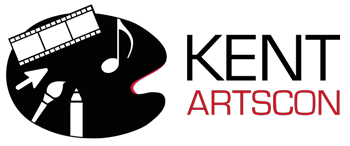CArtseCon 2020 – Art to the Rescue

Thank you all for making #CArtseCon2020 such a success.
Our first virtual conference was held on July 15, 2020 and attended by nearly 200 people from around the world.
The conference began with CArtsCon directors, Dr Jill Kiefer and Dr Julian Ng, welcoming everyone and setting out the rules for the day. The first speaker was Indah Morgan representing the 19 Countries Project, which showcased how writers from 19 different countries came together using creative writing as a catharsis to deal with the difficulties of the COVID-19 pandemic. Dr Ekawati Dukut continued the theme with case studies of students writing creatively and creating graphic novels to deal with the ramifications of the pandemic.

Dr David Stokes spoke about how a local community in Medway, Kent, used continued to thrive despite the lockdown, using art as the medium of expression. The theme was echoed by Dr Ayodele Adewunmi who demonstrated some novel ways of artists continuing with their business in locked-down Nigeria.

Post lunch break, the conference had the participants in stitches with a hilarious virtual improv session by the aptly-named Twinprov (Sarah Davies and Julie Flower) with some technological wizardry by Boyd Branch.
Chandra Prijosusilo showcased how textile artisans on the Indonesian island of Sumba combined their cultural legacies with individual artistry to improve the local economy and environment.

Jack Lowe brought some interactivity by leading everyone on a location-based hunt with his Canterbury in 3-Words game, before Iswadi Mawabagja tried to prove that statisticians are not boring people – they love creating comedic drama to relieve stress and improve work/colleague engagement.
Sofia Avancini (represented by Markus Feichter) and Sami Barbieri, two high-school students from Waldorf Oberstufe in Bolzano, Italy, premiered two short films entitled Rento and Emozioni respectively.

The Pakistani experience of art education, vocational artistry and social distancing was highlighted by Gouhar Pirzada, with some novel examples of how students and teachers managed to continue their learning.
Libby Geiselmayr broached a similar issue, but from a government’s perspective, where a local county sought to provide some sort of normalcy in its programmes and activities despite the challenges of COVID-19.
From New York, Dr Sozita Goudouna provided a fascinating insight into the politics of breathing, as represented in art, particularly in light of movements such as #ICantBreathe and #BLM.

The Beaney House of Art and Knowledge in Canterbury is a museum with a difference because it has programmes using art to engage with hard-to-reach groups and people suffering from dementia, as presented by Jemma Channing.
Dr Victoria Sonstegard entertained participants with her take on art appreciation as a means to keep the brain active and learning, especially for an ageing population.

Rounding up the e-conference was Dr Victor Matthews, a fifth generation whiskeymaker, who turned his distillery into a factory making life-saving hand-sanitisers for the local key workers such as healthcare professionals and policemen.
